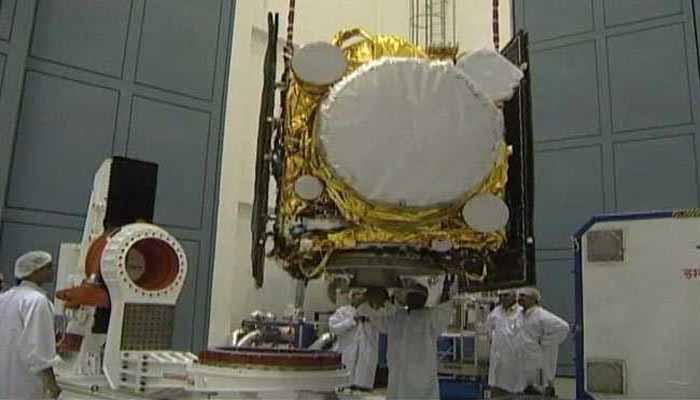
The launch of India’s latest navigation satellite onboard its polar rocket failed following a technical glitch just prior to its scheduled orbiting in space.
Indian Space Research Organisation (ISRO) chairman AS Kiran Kumar said in the press conference “The mission was unsuccessful.”
“The rocket heat shield didn’t separate. The satellite is inside the heat shield,” he said.
The rare setback for the ISRO in India’s space history involving the workhorse rocket Polar Satellite Launch Vehicle (PSLV) came shortly after a perfect lift off of the PSLV C-39 from the Satish Dhawan Space Centre.
The rocket’s heat shield should have separated some three minutes into the launch, but it failed to.
The scientists waited for some 19 minutes to see if it would separate, and then declared the mission unsuccessful.
A successful launch of India’s eighth navigation satellite–IRNSS-1H–would have ushered a new era in the country’s history of space exploration as, for the first time, the private sector has been actively involved in assembling and testing of a satellite.
The 1,425 kg IRNSS-1H satellite – part of Indian satellite navigation system NavIC or originally called Indian Regional Navigation Satellite System (IRNSS) – was carried by Polar Satellite Launch Vehicle (PSLV) rocket’s XL variant.
The IRNSS-1H was a replacement for one of the navigation satellites. The IRNSS-1H satellite was to have been slung into orbit at around 507 km above the earth.
The gas motor powers the rocket’s second stage control actuators for manoeuvring the engine’s nozzle – the process is called gimballing. The process enables the rocket to maintain a steady course on its way up.
The failure of PSLV on Thursday is expected to impact ISRO’s prospects in the global small and medium sized global satellite launch market.

Post Your Comments